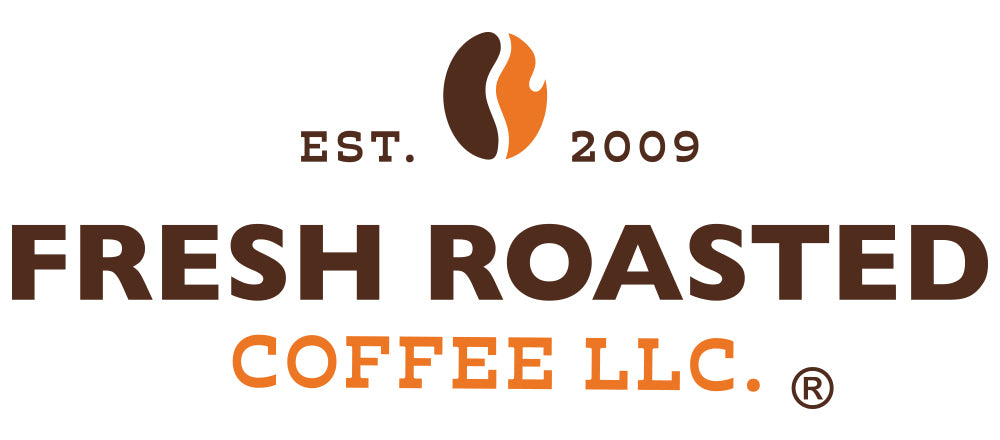Ethiopia: The Birthplace of Coffee
Thought to be the true origin of the coffee plant, Ethiopia has the perfect conditions for coffee growing. Its namesake Heirloom varietal grows wild in rainforests that provide the cherries with essential canopy cover. Our Ethiopian coffee comes from two places in Ethiopia: the Oromia Region and the Gedeo Zone.
The Sidama Coffee Farmers’ Cooperative Union (SCFCU) in Dire K’alu, Oromia Region, Ethiopia, was established to represent producers throughout Southern Ethiopia. It is now the second-largest cooperative union in Ethiopia, with 80,000 farmers in its ranks as of 2013. Our Fair Trade Organic Ethiopian Sidamo is sourced from family farms around the Shoye Cooperative. Grown around 2,000 masl (meters above sea level), this coffee is sweet and complex. Our limited-release Guji Wubanchi is a landrace coffee grown similarly high up in Mesina, with mouthwatering notes of key lime, green apple, and hibiscus.
In the Gedeo Zone grows our Organic Ethiopian Yirgacheffe, a sweet and mild coffee. With hints of bright citruses like sweet tangerine and lime, the acidity level is powerful and bright, while the cup finishes with a dry, lemon tea finish. The Yirgacheffe Coffee Farmers’ Cooperatives Union (YCFCU) is composed of 13 member organizations who were exploited by the government around 2002. Despite bankruptcy, the ‘90s coffee crisis, and member hesitancy, the YCFCU reemerged. Their focus lies in sustainable coffee advancement and improving member farmers’ standard of living.
Washing and Drying
Of our six Ethiopian offerings, Sidamo Guji is the only coffee that’s processed naturally, meaning the coffee beans are dried inside their cherries. This process imparts more syrupy and sweet flavors in the final cup. The rest (aside from Organic Sidamo’s Water Process) are all fully washed. Fully washed is typical of high-quality coffee. Washed coffee is all about the seed, not the cherry. Most specialty coffees are washed because this process gives the most true-to-origin experience, as the mucilage can impart syrupy flavors if left intact during processing. In line with African tradition, all coffees are dried on raised beds, which are specialized beds made of wood, chicken wire, and plastic netting that promote airflow.
Fresh Roasted Coffee Keeps It (Mostly) Light-Medium
To preserve the eclectic, wine-like flavors of coffee’s motherland, we crafted our Ethiopian roast profiles on the lighter side.
To preserve the unique flavors of coffee’s motherland, we typically roast our Ethiopian coffees lighter, which highlights their juicy fruit and creamy notes. Ethiopian coffees are lauded for their wine-like brilliance and pleasant acidity, consistently ranking at the top of most Q grader’s cupping forms. At the same time, however, Ethiopian coffee is very versatile, so it tastes great at most roast levels, as is the case with our FTO Yirgacheffe and Dark Yirgacheffe Kochere. A little Maillard flavor gives the coffees’ naturally sweet and delicate notes a deep, honeyed undertone like a cordial cherry or caramelized fruit.


4 Comments
What can you tell me about Ethiopian Harrar? I got some, twice, through the base exchange at Camp Lemonniere. At the time I had tried one African coffee, I didn’t know what it was so I got the first Ethiopian coffee I could find. It didn’t quite match the taste, I knew it wasn’t the same one (I have finally decided I was served Ethiopian Yirgacheffe for my first taste of African coffee), but it was still a very good coffee. Do you have Harrar? Have you even heard of it? Can you get it?
Family members sent as a gift to me the Ethiopian Sidamo Swiss Water Decaf. The decaf, because I am a decaf coffee drinker. Out of curiosity I asked my husband would he like to try it because we had never seen or heard of this kind of coffee and he is not; I mean was not a decaf coffee drinker. After our first cup now we both are Ethiopian Sidamo Decaf Coffee users! I have a few cans of another kind of decaf coffee I have used for years but when I am low on your supply of decaf coffee I will be putting in an order. Thanks
Great! Thanks for responding… I love your coffees and am seriously considering a monthly delivery. It’s just super important for me to know that as I sip superbly roasted, delicious coffee, that those who’ve made it possible at its source are fairly treated. Otherwise, not much of a treat for us in this household. Thanks again! LJ
Hello! I love reading about the sourcing of the coffee as well as traditional bean handling. I’m encouraged greatly that the coffee is sourced from cooperatives. I guess the only question I have, that I didn’t see addressed in the material is if the coffee is purchased at true Fair Trade prices? It’s such a wildy difficult market and I tend to buy Equal Exchange coffees and teas because I know they pay wlthe growers what thry need not just to survive, but to thrive. Does FRC do the same?
Leave a comment